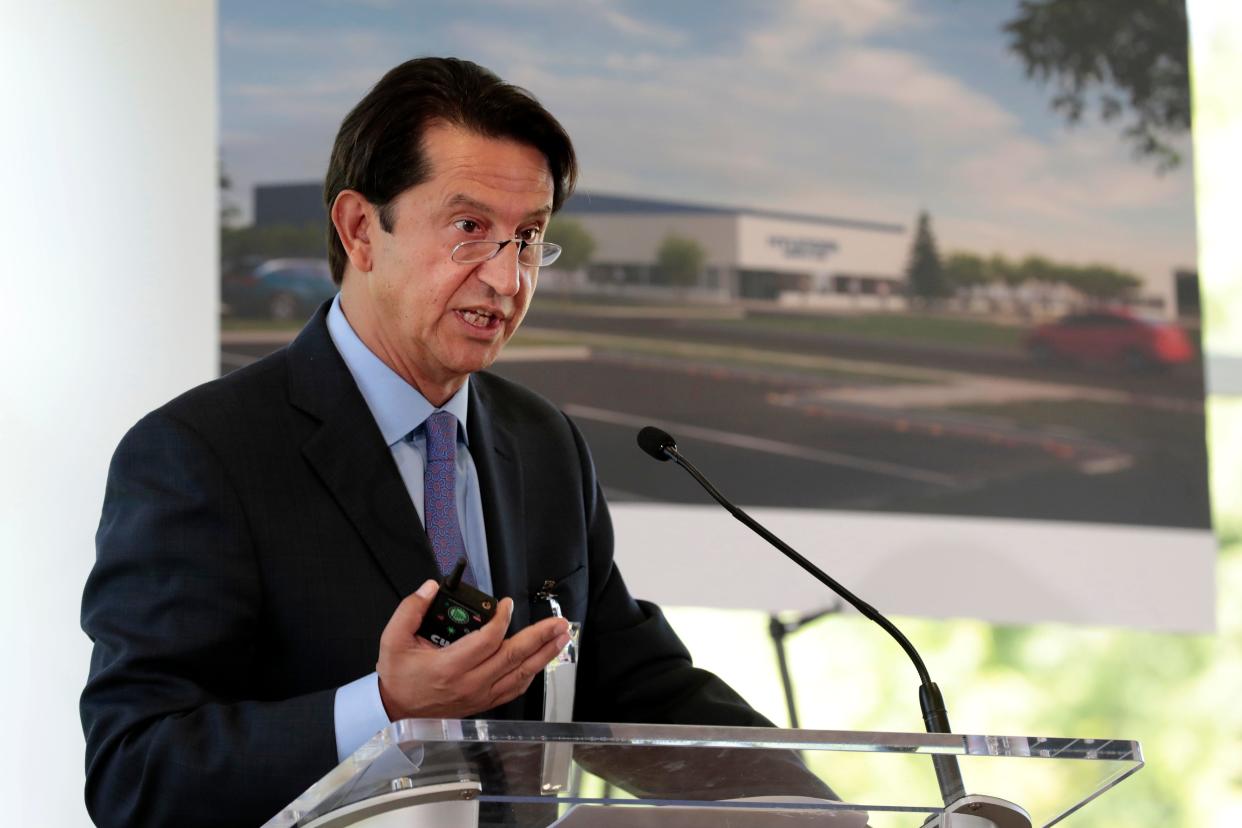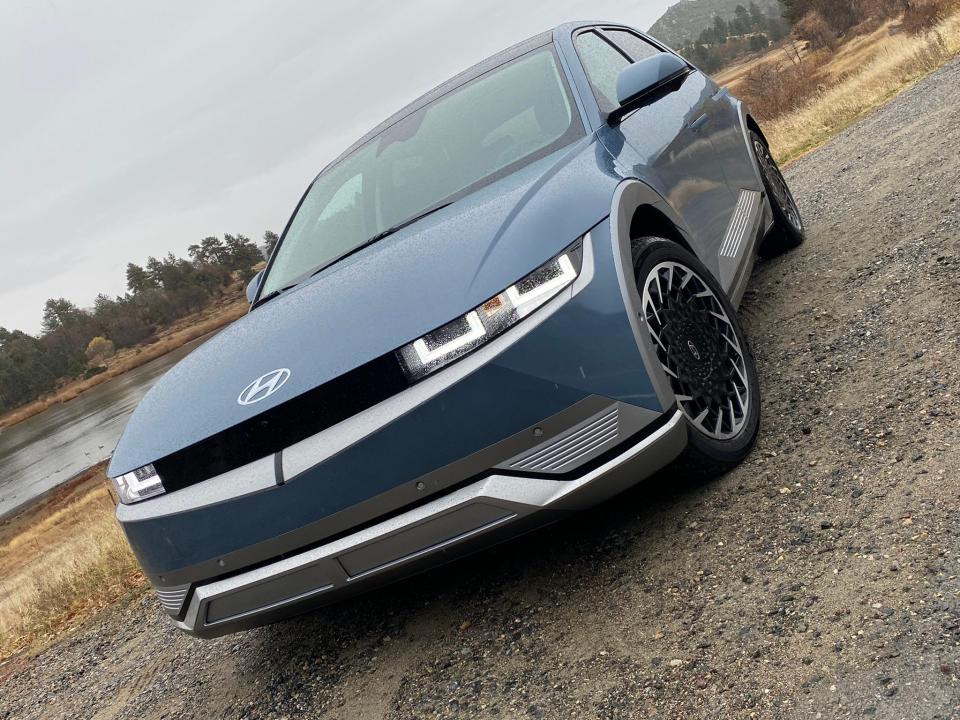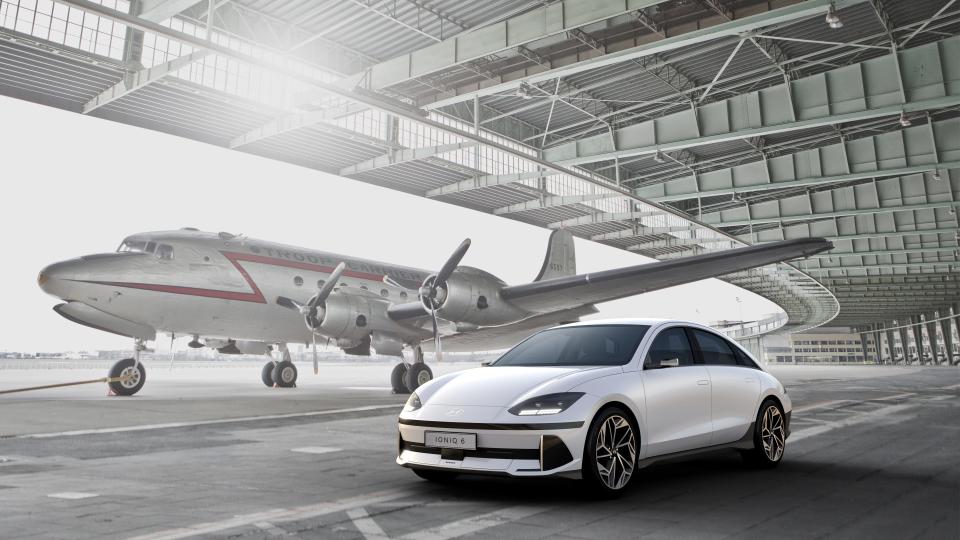Hyundai is bullish on the US market, especially its own prospects here

Inflation and gasoline prices may make the next year or so look tough in the U.S., but to paraphrase Hyundai Motor Chief Operating Officer José Muñoz, you oughta see the other guys.
The urbane Spaniard was recently elevated from boss of Hyundai’s rapidly growing North American business to overseeing product and sales in Europe, South America, Africa, India and the Middle East. Translation: Responsibility for all of Hyundai Motor’s significant business outside its home market in South Korea and neighboring China now resides in Muñoz’s Fountain Valley, California, office.
Muñoz’s window has a view of the big picture. He likes what he sees coming for America.
“The macroeconomic situation in the U.S. is a little better positioned for energy,” Muñoz said this week over a conference table at Hyundai’s North American tech center just east of Ypsilanti. “We’re seeing a similar (economic) pattern at different speeds in the U.S. and Europe.”
The arrival of several appealing new electric vehicles — Hyundai’s own Ioniq 5 SUV prominent among them — and rising fuel prices due to Russia’s invasion of Ukraine increased America’s appetite for electric vehicles and hybrids, he said.
“The U.S. was behind Europe and China,” he said. “I think, hopefully, it’s catching up.”
Hyundai’s sales of electric and hybrid vehicles reflect that. U.S. hybrid and EV sales were up 14% through May, while the brand’s total is down 16%, Muñoz said.
Despite that, “We’re doing better than the market overall. We’ve had zero fleet sales the last few months,” he said at the groundbreaking of a $51.6-million safety lab in Superior Township that will research incidents involving its vehicles on American roads. The lab will employ up to 160 engineers when it opens in fall 2023.
Hyundai’s sales dip this year is due to pandemic-related shortages of all kinds of parts, not just chips, he said, adding that “2023 may be almost back to normal.” In the meantime, Hyundai will “strongly advocate” for its dealers to avoid price markups and sell vehicles for the price advertised on their websites.
More EVs coming. Lots more.
Struggling to build enough EVs and hybrids to meet U.S. demand, Hyundai’s Montgomery, Alabama, plant will add production of the Santa Fe hybrid midsize SUV and Genesis GV70 EV this fall and in December, respectively.
Hyundai’s also investing $5.5 billion in an EV-only assembly plant and a battery plant due to open in Georgia in 2025.
The facility in Bryan County, not far from Savannah, will eventually build 300,000 EVs annually. Hyundai hasn’t said what vehicles they’ll be, but I expect SUVs, the dominant body style in the U.S.

Brands like Ford, Chevrolet and Volkswagen have drastically curtailed their passenger car lines to make room for more SUVs, but Muñoz said Hyundai remains committed to passenger cars.
“We’ve decided to stay in the passenger car business,” Muñoz said. “Vehicles like the (compact) Elantra are still doing well.”
“Well” is a relative term. Elantra sales are down 34% this year, double the brand total, but the midsize Sonata plunged 66% in the same period. The Honda Civic, traditionally one of America’s best-selling cars, is off 49.5. A few days after Muñoz spoke, Hyundai dropped several cars from its U.S. lineup for the 2023 model year, including the subcompact Accent and midsize Ioniq hybrid and plug-in hybrid.
Hyundai’s next EV
Despite that trend, Hyundai unveiled an electric sedan in South Korea this week. Called the Ioniq 6, the sleek car — apparently a midsize sedan — is slated for production in South Korea and on sale in the U.S. late this year or early 2023.
Discussion of the Ioniq 6 in autocentric corners of the internet focused on which vehicles its design borrowed from most. Leading contenders included the Porsche Taycan and Infiniti J30.

I’d add the French Citroën DS, particularly since Hyundai’s inexplicable faux black and white image of a 6 next to a 1950s-style propeller airliner looks like a poster for "Back to the Future VII: McFly In Casablanca." Fairness also requires a nod to a legendary vehicle name poet Marianne Moore coined in the '50s for Ford: the Utopian Turtle Top.
Ford spurned Moore’s suggestions in favor of "Edsel." Don’t sleep on the Turtle.
Numerology notwithstanding, the Ioniq 6 does not appear to be much bigger than the Ioniq 5 SUV that went on sale earlier this year. Regardless of size, price or features, no sedan is likely to make much of an impression in the U.S. these days. Launching a new sedan rather than an SUV here is an act of nostalgia more than business acumen.
Like seeing a 4-year-old swing and miss at T-ball, the best response seems to be, “That’s so cute.”
This article originally appeared on Detroit Free Press: Hyundai COO: US may be catching up on EVs

